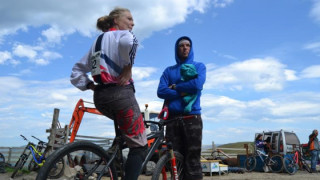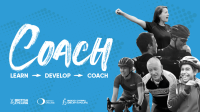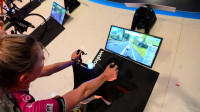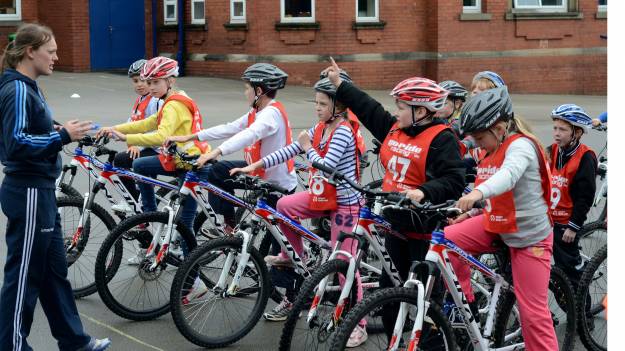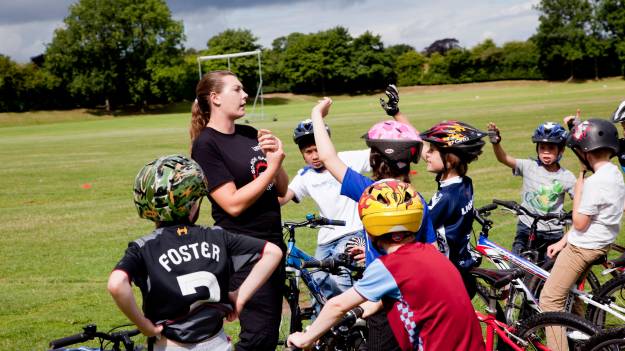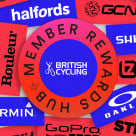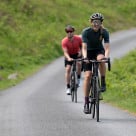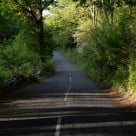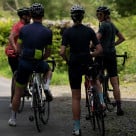British Cycling Level 3 Mountain Bike Coach, James Scott, shares his experience of coaching at the MTB World Cup.
James has completed his MTB and BMX Level 2 coaching awards. Over the past five years, he has worked with groups of all ages and abilities, as well as offering performance coaching to the Army DH Team and three elite riders, as well as a whole host of other individuals.
The Fort William Downhill World Cup is a premier event in the international MTB calendar and it the first World Cup, not only for myself as a coach, but also the rider I was coaching, Emma Atkinson. Fort William is a true test of skill, fitness and mental ability. It throws everything at a Downhill rider that a track can - and that’s just on a normal day. At a World Cup, everything is heightened including nerves, anticipation and excitement.
Emma is a great rider to work with, not only giving detailed training feedback, but also constantly wanting to push herself and improve. This, in turn, pushes me to produce progressive and exciting training plans, with the preparation for Fort William World Cup definitely demanding just that. We'd set two goals for Emma for the weekend, get a personal best on the track and hit the road gap jump, with the aim of qualifying in the top 20.
We arrived at the track on Thursday afternoon, ready for the track walk. This was a little more intense than usual, as we were surrounded by World Cup racers and their teams. Emma lives in Scotland and has raced Fort William many times, so the course was very familiar to her. However, as this was a World Cup race, the road gap jump was now part of the course. Emma had not hit it before and had concerns about doing so. During the track walk, we looked at it from a few different angles, talked about the technique and ideal approach speed.
Friday was practice day. Emma went up the hill for her first practice run, while I waited in the finish area. As she approached the finish line, it was obvious there was something wrong with the bike. She'd hit one of the many slabs on her way down and bent the derailleur hanger. Without the funds for a spare, we simply bent it back into place, and Emma was back on the gondola for her second practice. I headed up the track to get some video footage of other riders, to show Emma how others tackled it. Watching the best riders in the world attack one of the hardest courses was great to see. It allowed me to analyse the many line choices and feed this back to Emma.
Saturday was qualifiers. Emma’s nerves were already clear to see and as her coach, I needed to ensure there was a relaxed atmosphere surrounding her. When riders are under pressure, it’s easy for them to forget their pre-race routine; such as having breakfast or leaving your front wheel behind. In these situations, as a coach, you not only need to be a coach, but also step in as nutritionist, mechanic, runner.
As soon as we got to the track, Emma was keen to get up the hill, practice her new lines and hit the infamous road gap. The new lines were working really well, but unfortunately with Emma suffering another mechanical she could not attempt the road gap. Despite fixing the bike, Emma was unable to get any further practice runs in before qualification, as riders were asked to get to the top of the hill a lot earlier than planned for their qualification runs as high gusts were a potential threat to the closure of the gondola.
With thirty minutes to go, it was time to get Emma focused and fully prepped physically, so Emma set about with her pre-race routine. I’ve found over time, each rider has their own pre-race rituals and I believe, as a coach, it’s integral to not only let the riders do these, but actively encourage and support the riders in doing them. At a big race, such as a World Cup, this is as important as ever. In addition, I also got Emma doing a decent warm up on the turbo and I found the warm up not only focused Emma, but got me into a racing frame of mind too. We were both now ready for Emma's first World Cup qualifying run.
As she left the start gate, I jumped back in the gondola and tried to follow her down the track. By the time I reached the bottom, Emma had already finished. She'd had a clean run, and even though she'd bypassed the road gap, she'd been fast, registering sixth quickest through the speed trap at an impressive 48mph. She'd qualified in 20th. We were elated. This not only meant that she'd done a faster run than some regular World Cup racers, but she'd also achieved her aim for the weekend.
Sunday was finals day; another early start, but we all felt a lot more relaxed. Setting goals and then achieving them not only makes you feel more confident, but brings a sense of calm to the situation. However, Emma still had one goal to tick off her list and this was the road gap. One of the most important lessons I have learnt as a coach is that you need to know when to step away, stop coaching and just let the rider, ride. This was one of those occasions. Emma went up for her first practice and hit the road gap on her way down.
Before long, we were back at the top of the hill doing the warm up and it was time to focus. We all felt a lot more relaxed this time round with all three goals for the weekend already met and Emma was looking forward to her race run.
But, this is Fort Bill and things can go any way - Emma unfortunately suffered a mechanical on her race run and was unable to finish the race. But through this disheartenment of somewhat unavoidable mechanicals, we were able to keep positive, having achieved all of the goals and actually qualify for the race itself. And to top it off, she was also awarded the UCI ‘Best New World Cup Rookie' award. As for me, the experience of coaching a rider before and during a World Cup has been amazing. I have learnt a great deal that I will be taking with me and implementing later in the year when we head off to France for the last World Cup of the season.

